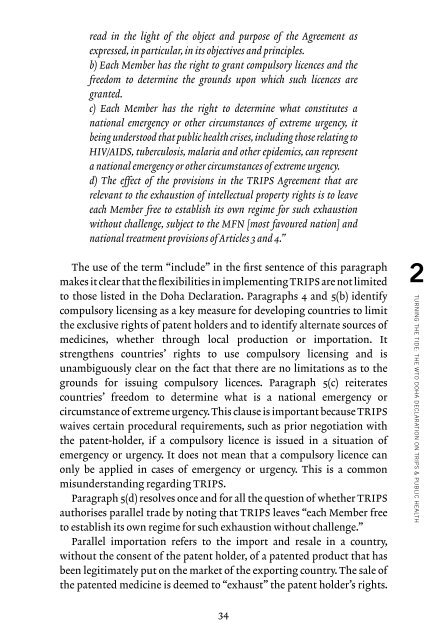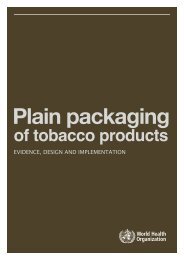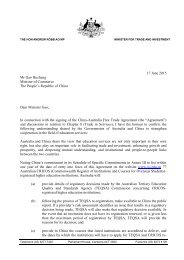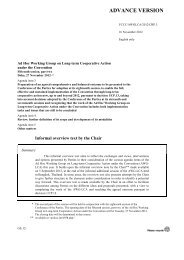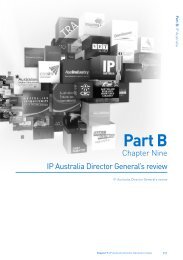PRIVATE PATENTS AND PUBLIC HEALTH
private-patents-and-public-health
private-patents-and-public-health
Create successful ePaper yourself
Turn your PDF publications into a flip-book with our unique Google optimized e-Paper software.
ead in the light of the object and purpose of the Agreement as<br />
expressed, in particular, in its objectives and principles.<br />
b) Each Member has the right to grant compulsory licences and the<br />
freedom to determine the grounds upon which such licences are<br />
granted.<br />
c) Each Member has the right to determine what constitutes a<br />
national emergency or other circumstances of extreme urgency, it<br />
being understood that public health crises, including those relating to<br />
HIV/AIDS, tuberculosis, malaria and other epidemics, can represent<br />
a national emergency or other circumstances of extreme urgency.<br />
d) The effect of the provisions in the TRIPS Agreement that are<br />
relevant to the exhaustion of intellectual property rights is to leave<br />
each Member free to establish its own regime for such exhaustion<br />
without challenge, subject to the MFN [most favoured nation] and<br />
national treatment provisions of Articles 3 and 4.”<br />
The use of the term “include” in the first sentence of this paragraph<br />
makes it clear that the flexibilities in implementing TRIPS are not limited<br />
to those listed in the Doha Declaration. Paragraphs 4 and 5(b) identify<br />
compulsory licensing as a key measure for developing countries to limit<br />
the exclusive rights of patent holders and to identify alternate sources of<br />
medicines, whether through local production or importation. It<br />
strengthens countries’ rights to use compulsory licensing and is<br />
unambiguously clear on the fact that there are no limitations as to the<br />
grounds for issuing compulsory licences. Paragraph 5(c) reiterates<br />
countries’ freedom to determine what is a national emergency or<br />
circumstance of extreme urgency. This clause is important because TRIPS<br />
waives certain procedural requirements, such as prior negotiation with<br />
the patent-holder, if a compulsory licence is issued in a situation of<br />
emergency or urgency. It does not mean that a compulsory licence can<br />
only be applied in cases of emergency or urgency. This is a common<br />
misunderstanding regarding TRIPS.<br />
Paragraph 5(d) resolves once and for all the question of whether TRIPS<br />
authorises parallel trade by noting that TRIPS leaves “each Member free<br />
to establish its own regime for such exhaustion without challenge.”<br />
Parallel importation refers to the import and resale in a country,<br />
without the consent of the patent holder, of a patented product that has<br />
been legitimately put on the market of the exporting country. The sale of<br />
the patented medicine is deemed to “exhaust” the patent holder’s rights.<br />
2<br />
TURNING THE TIDE: THE WTO DOHA DECLARATION ON TRIPS & <strong>PUBLIC</strong> <strong>HEALTH</strong><br />
34


